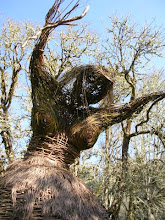
Ephemera does require some research, and sometimes it takes one down strange and esoteric roads. Sometimes it just contains a pebble that one feels obliged to pick up and turn over speculatively…then attempt to identify.
In this case, I picked up an old advertising leaflet from Prince’s Nurseries, Flushing, New York, dated October 1, 1856 and titled “Chinese Potato: Dioscorea Batatas, Imperial Rice-White Variety.” I wasn’t too sure what a “Chinese potato” might be and so I started to read this advertisement with its somewhat extravagant claims.
Right off the bat it describes the product as an “inestimable esculent.” Okay, two things to find out. What is a Chinese potato, and what is an esculent?
The claims for the inestimable esculent contain some superlatives, including “…this combination of every useful property renders it the greatest vegetable boon ever granted by God to man, and that its introduction to our country is even more important than that of Cotton, and that in twenty years our National statistics will report the value of the annual crop as greater than the Cotton crop.” This nurseryman, identified as Wm. R. Prince, goes on to state, “…I assert that this plant alone has served to solve the enigma as to the alimentary basis of the Chinese empire, and that a statistical investigation will prove, that if that country were deprived of this one vertical root, and received in lieu every other known vegetable, more than one half of its enormous population would perish from famine.” Well, note that he said a statistical investigation WILL prove, not that there had been one.
Prince does not mince words. Further on he supports his claims by asserting, “The statements pretending to emanate from the Farmers’ Club of the American Institute, last Spring, unfavorable to this plant, were barefaced forgeries, made from malicious motives.”
What a lot of fuss, even for an inestimable esculent.
Other statements in the ad led me to believe that this vegetable must be some kind of yam, which indeed it is- although I can’t say that anyone has become wealthy from growing it, nor has it attained the popularity suggested by Prince. It seems to be on the order of the sweet potato, with light-colored flesh. (And some forms of which classified as weeds.)
As for esculent, it turns out to be a somewhat archaic – although certainly useful – word meaning “fit to be eaten” or “edible.” It could be a nice distinction, especially when differentiating between two species of a plant, one of which is edible and one poisonous, as with the camas. In fact, in the Journals of Lewis and Clark Meriwether Lewis writes, “Many of those plants produce those esculent roots which form a principal part of the subsistence of the natives.”
I’ll admit a decided fondness for garnet yams (those with the deep orange color). They don’t require much to make them truly estimable esculents. (Can you see that on a menu? “Estimable esculents in butter sauce with sea salt.” Yum.




2 comments:
Just started back to reading Biblio after a looooooong hiatus. Didn't know you had a blog, what a delightful read this was. I'll be back to read more!
I'm definitely adding "Estimable esculents in butter sauce with sea salt" to my next dinner menu. Whether I actually make it or not, it should confuse any guests considerably...Though I have to say when it comes to archaic English, I'm rather fond of "nizzle" (to be slightly intoxicated).
Post a Comment